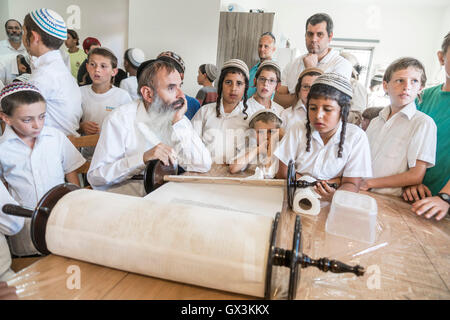Full Answer
How do you read Hebrew words?
Here's a list of translations. Hebrew Translation. לוח. More Hebrew words for blackboard. noun לוּחַ כִּתָה. blackboard. Find more words! Another word for Opposite of Meaning of Rhymes with Sentences with Find word forms Translate from English Translate to English Words With Friends Scrabble Crossword / Codeword Words starting ...
What is the alphabet of the Hebrew alphabet?
Jul 12, 2021 · Translations in context of “blackboard” in English-Hebrew from Reverso Context: He scribbles on a blackboard the names of people and events he is curious … 6. לוח – tablet, board; blackboard; table, list; calendar – Hebrew …
Why should I translate Hebrew words?
May 27, 2021 · Translations in context of "blackboard" in English-Hebrew from Reverso Context: He scribbles on a blackboard the names of people and events he is curious … 6. לוח – tablet, board; blackboard; table, list; calendar – Hebrew …
How do you write an accent in Hebrew?
How to say "Blackboard" in Hebrew (Listed in the School category) Previous word: Black Coffee | Next word: Bladder. Learn Hebrew the Easy Way! Sign up for free and we will send you Hebrew vocabulary words straight to your inbox. It's free and you can unsubscribe at any time.

How do you write blocks in Hebrew?
0:586:15Learn Hebrew Writing #1 - Hebrew Alphabet Made Easy: Alef and BeitYouTubeStart of suggested clipEnd of suggested clipThe name of each letter starts with the sound you use to pronounce it which means the sound of AlephMoreThe name of each letter starts with the sound you use to pronounce it which means the sound of Aleph is ah. It is handwritten like this.
What do the dots under Hebrew letters mean?
niqqudIn Hebrew orthography, niqqud or nikud (Hebrew: נִקּוּד, Modern: nīqqūd, Tiberian: nīqqūḏ, "dotting, pointing" or Hebrew: נְקֻדּוֹת, Modern: nəqudōt, Tiberian: nequdōṯ, "dots") is a system of diacritical signs used to represent vowels or distinguish between alternative pronunciations of letters of the Hebrew alphabet ...
How do you pronounce dagesh?
4:0217:00Hebrew Grammar - Dagesh (דגש) - YouTubeYouTubeStart of suggested clipEnd of suggested clipIt's first letter bet has the dagesh Cal. Because it's a letter that has two possible pronunciationsMoreIt's first letter bet has the dagesh Cal. Because it's a letter that has two possible pronunciations bet and vet that means we need to know whether to pronounce this word beggin or vagin.
What is a dagesh in Hebrew?
The dagesh (דָּגֵשׁ) is a diacritic used in the Hebrew alphabet. It was added to the Hebrew orthography at the same time as the Masoretic system of niqqud (vowel points). It takes the form of a dot placed inside a Hebrew letter and has the effect of modifying the sound in one of two ways.
How do you read Niqqud?
0:215:14Time to learn the Hebrew Nikud - YouTubeYouTubeStart of suggested clipEnd of suggested clipWe have this in the English language as well the vowel sound ooh can be written either with theMoreWe have this in the English language as well the vowel sound ooh can be written either with the letter U. Or with two O's.
What are the 22 letters of the Hebrew alphabet?
The Hebrew alphabet has 22 letters. It does not have case. Five letters have different forms when used at the end of a word. Hebrew is written from right to left....Hebrew alphabetOfficial scriptIsraelLanguagesHebrew, Yiddish, Ladino, Mozarabic, Levantine ArabicRelated scripts13 more rows
What is a guttural letter in Hebrew?
In the Hebrew Alphabet, there are also four guttural letters. The word guttural literally means 'of the throat', and is derived from the Latin word for throat. ... The four guttural letters are: Aleph- א, Hey- ה, Chet – ח, Resh- ר.Jan 7, 2019
What is a strong dagesh?
1:314:53Strong Dagesh - YouTubeYouTubeStart of suggested clipEnd of suggested clipSound strong doggish or the doubling of letters occurs in a number of situations. First is toMoreSound strong doggish or the doubling of letters occurs in a number of situations. First is to compensate for a missing letter. This occurs most frequently when the letter noon is missed out.
What is a Maqqef in Hebrew?
Hyphen and maqaf The maqaf ( מַקָּף) ⟨ ־⟩ is the Hebrew hyphen ⟨-⟩, and has virtually the same purpose for connecting two words as in English.
What is furtive Patach?
A pataḥ on a letter ח, ע, or הּ (that is, ה with a dot (mappiq) in it) at the end of a word is sounded before the letter, and not after. ... This is sometimes called a pataḥ gnuva, or "stolen" pataḥ (more formally, "furtive pataḥ"), since the sound "steals" an imaginary epenthetic consonant to make the extra syllable.
What is the difference between dagesh Lene and dagesh Forte?
The dagesh sign was used mainly in two contexts. These are (i) on a consonant that was geminated (traditionally referred to in modern grammars as dagesh forte) and (ii) on the consonants תפכדגב when they were realized as plosives (traditionally referred to as dagesh lene).
What is a Mappiq in Hebrew?
The mappiq (מפיק, also mapiq, mapik, mappik, lit. "causing to go out") is a diacritic used in the Hebrew alphabet. It is part of the Masoretes' system of niqqud (vowel points), and was added to Hebrew orthography at the same time. It takes the form of a dot in the middle of a letter (usually ה, he).
Popular Posts:
- 1. grade discussion forum blackboard ualr
- 2. how to know if an assignment is going through safe assign on blackboard
- 3. what pictures picture format can be seen on blackboard
- 4. how to import word to blackboard
- 5. how to create a test pool in blackboard
- 6. texas a&m law school blackboard
- 7. blackboard pdfs won't open
- 8. utsa blackboard log in
- 9. campus connect blackboard
- 10. how to submit an attachment on blackboard